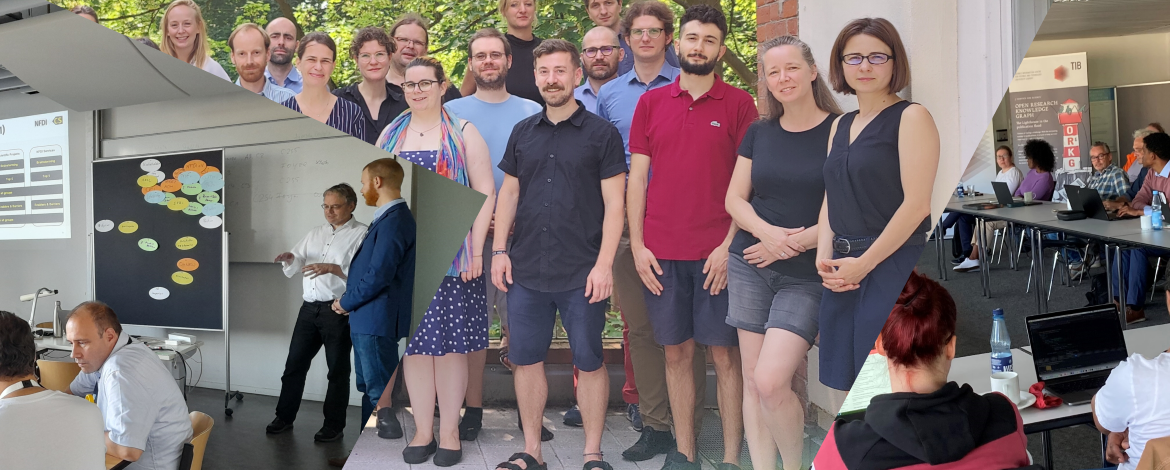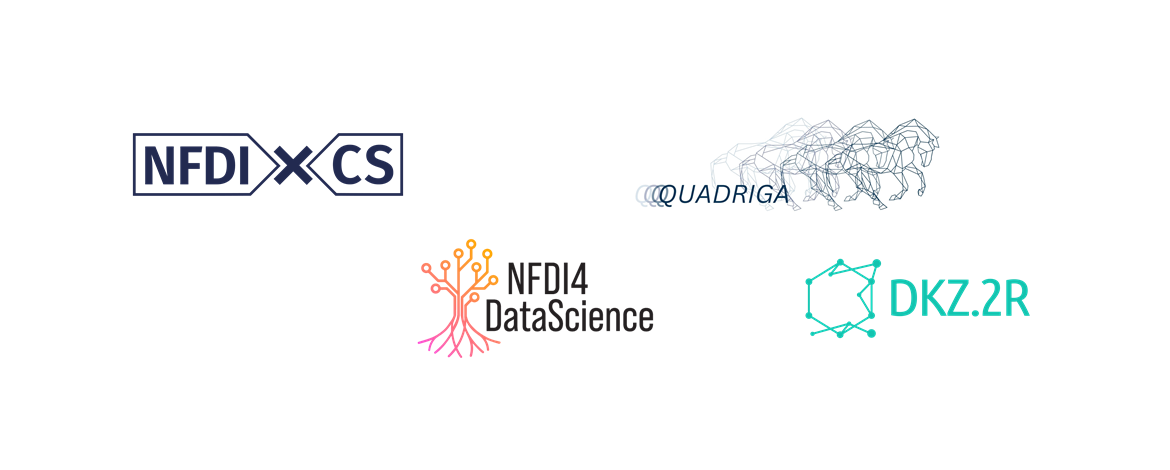Workshop "Research Data and Software Competencies"
Short Description
Hosted by the Volkswagen Foundation (alongside three other workshops), the workshop “Research Data and Software Competencies” targets participants (from early career to senior researchers and practitioners) involved in research software management and data literacy, organized by NFDIxCS, NFDI4DS, QUADRIGA und DKZ.2R . Conducted in English, the workshop will focus on three key areas: 1) identifying essential research data and software competencies that are overlooked/underrepresented in existing (data and software literacy) frameworks, programs, and curricula 2) exploring best practices for teaching the competencies to researchers, given their specificvarious needs and constraintsbackgrounds; 3) collaboratively developinging collaborative strategies for creating educational resources and training programs. The event will also include a discussion with the participants from the other three workshops on overarching questions (not yet released by the Volkswagen Foundation). The workshop format includes brief expert presentations followed by small-group sessions, with the results of the group work shared and discussed in a larger forum.
Guiding Questions
1. What are the essential research data and software competencies that are often overlooked (e.g., in existing (data and software literacy) frameworks, programs, and curricula)?
Suggestions for the sub-questions:
1.1. How can we define and operationalize research data and software competencies to ensure a comprehensive coverage across various disciplines?
1.2. What unique considerations arise when dealing with other digital research artifacts (e.g., workflows, protocols, models) that are neither traditional data nor software?
1.3. What core data and software competencies should be considered essential for all researchers, regardless of their primary discipline or level of technical expertise? How can the competencies accommodate various roles, backgrounds and disciplines of the target groups?
Expected output: A list of concrete competencies (or approaches/frameworks that we can use) that are currently underrepresented in existing frameworks.
2. How can we effectively teach research data and software competencies to researchers, considering their specific needs and constraints?
Suggestions for the sub-questions:
2.1. How can we address the diverse needs of researchers from different disciplines, considering that software requirements may vary significantly across fields?
2.2. What are effective ways to assess and certify the competencies that are meaningful in academic and research contexts?
Expected output: create a list of discipline-specific use cases/examples for data/software literacy training
3. How can we effectively collaborate to develop and possibly share educational resources and training programs?
Suggestions for the sub-questions:
3.1. What existing (educational) resources and training programs from each participating project is already shared, can be shared or can be adapted for wider use? How can we leverage the strengths of each participating project?
3.2. What are the potential challenges in collaborative resource development (e.g., intellectual property, differing institutional policies, licenses), and how can we address them?
3.3. How can we establish quality standards for collaboratively developed educational resources and training programs?
3.4. How can we measure the impact and effectiveness of collaboratively developed educational resources and training programs?
Expected output: Action plan for collaboration among participating projects and institutions (including an inventory / best practices of existing educational resources and training programs from all participating projects)
Contact
Should you have any questions, feedback, or suggestions regarding this workshop, please feel free to write to rdsculistserv.dfnpde.


